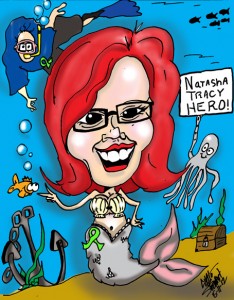Should Mental Illness Funding Be Used on Addiction Treatment?
If you read the Breaking Bipolar blog over at HealthyPlace you might have seen a question earlier this week:
People have come down on both sides of this question on HealthyPlace and on Facebook but I think the overarching sentiment is that addiction is not just another mental illness as personal choices lead to its existence. No one causes bipolar disorder or schizophrenia through action but no one puts a drink in an alcoholic’s hand and forces them to imbibe. Moreover, addiction recovery is considerably simpler in that addicts get better by choosing not to use substances while other mental illness treatment involves months of treatment before any turnaround is seen and typically involves lifelong treatment.
But whether you think that addiction (or, more specifically substance abuse and substance dependence) is simply another mental illness or not, there is this question:
- Should funds intended to be used on serious mental illness be used for addiction treatment?












Recent Comments